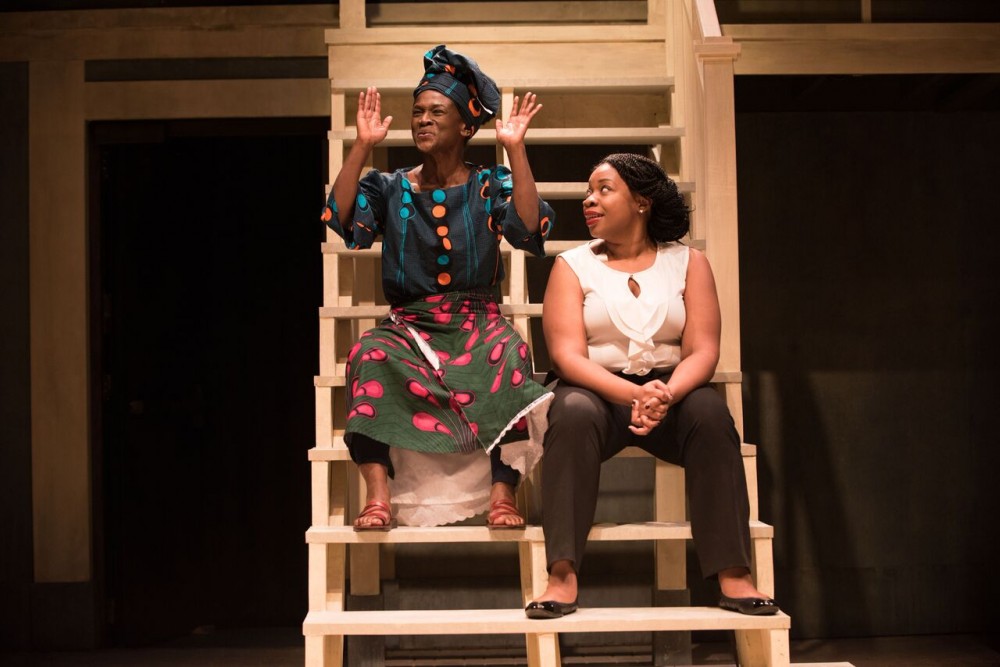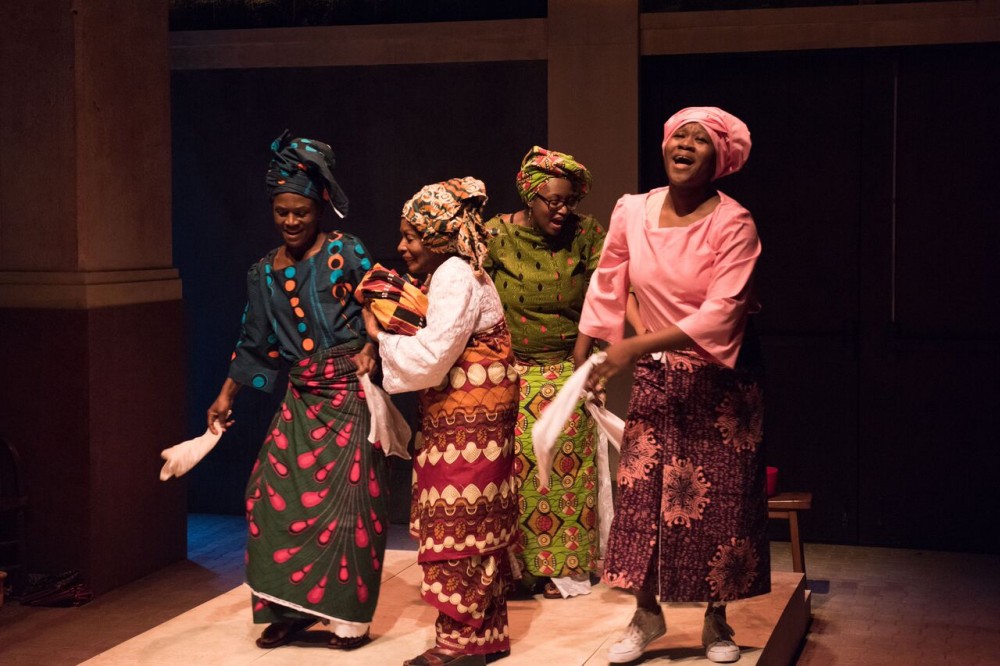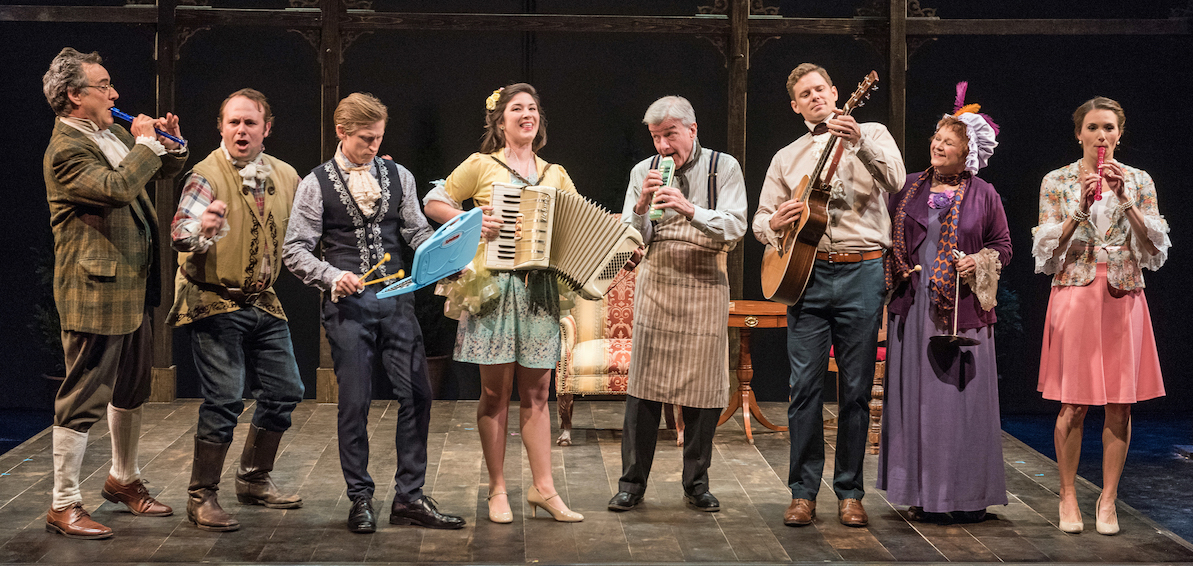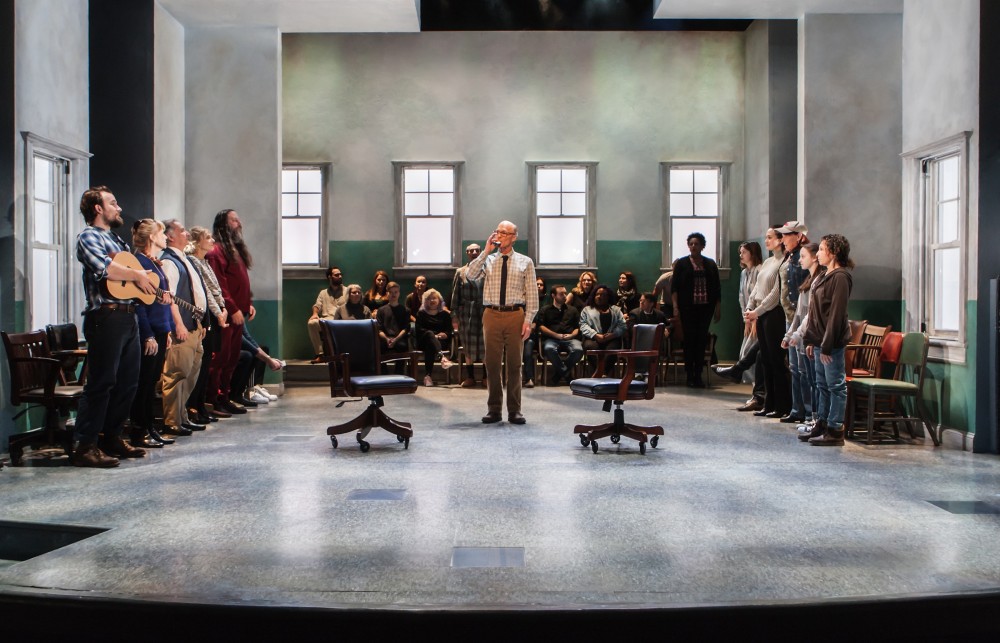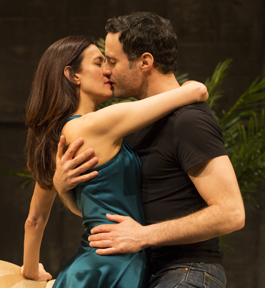by Michael Bracken
Ngozi Anyanwu’s The Homecoming Queen makes an impressive debut at the Atlantic Theater Company’s Stage 2, where it’s currently enjoying its world premiere. A powerful story, fueled by powerful writing, is brought vividly to life by director Awoye Timpo in a production that’s both simple and evocative.
Mfoniso Udofia is Kelechi. A writer based in the United States, Kelechi seems to have written only one book, but that book is a huge best-seller that got its author short-listed for the Pulitzer Prize. She has returned to Nigeria for the first time since she left fifteen years earlier, and her homecoming is traumatic. Not only is her father (Oberon K.A. Adjepong) dying, but memories of the violent attack that precipitated her flight and inspired her book cannot be kept at bay.
Udofia’s Kelechi seems a little out of focus at first, but it soon becomes evident it’s Kelechi herself, with her ill-fitting blouse (costume design by Ntokozo Fuzunina Kunene) and steady stream of tranquilizers, who’s hazy. Udofia’s take on her is spot on. She taps into Kelechi’s nervous, somewhat bitchy, energy quite well.
That energy is a product of her not knowing how to deal with the emotions being conjured up. So, she pushes people away. She’s disrespectful of Oga (meaning “boss;” how she and others refer to her father) and abusive to the fifteen-year-old servant girl, Beatrice. Played by Mirirai Sithole with an innate sense of the power of silence as well as words, Beatrice is the most grounded character in the piece. Sithole captures her intelligence and her keen observational skills. After initial antipathy, a bond forms and strengthens between Kelechi and Beatrice.
When Oga presents Obina (Segun Akande) to her, Kelechi says she doesn’t remember him. Yet he was her closest friend until she left for the states. He is also a part of the memory she wants to forget. So her resistance yields to qualified acceptance.
Kelechi also has trouble connecting with her chattering, gossiping aunties. They just about smother her when she arrives, and she yells at them. Director Timpo uses these four women (Ebbe Bassey, Vinie Burrows, Patrice Johnson, and Zenzi Williams) to great effect, and they, in their dazzlingly colorful plumage, are captivating as they laugh, sing, smile, talk, fold clothes, or stand in silence. They function like a Greek chorus, but their comments are not made to the audience. They’re made to each other or to other characters or not at all.
Scenic designer Yu-Hsuan Chen has put a second bank of seats where the stage normally sits, so the audience is divided into two segments facing each other, with the playing area in-between them. Timpo places the chorus members two on each side of the divide. They keep watch until they are part of the proceedings, which they join, returning to their lookout posts when they’re done. They’re fun and funny, full of mischief, capable of solemnity. They’re splendid to watch, and they make the play resonate, somehow extending it beyond Kelechi’s family circle and into the world at large.
And they’re there when Oga faces death. They shed their brilliant colors in favor of white and wait in the background while Kelechi sits with him. This is the one place where The Homecoming Queen stumbles; suddenly all the energy is sucked out of the room. That’s what death does, of course, but a director has to guard against its draining the production, rather than the character, of life. Oga’s demise plays out as a ritual, which would be fine, but not when the pace is deadly.
After Oga’s death, we see Kelechi ready to leave Nigeria, saying good-bye to Beatrice. Their relationship, the core of the play, is still being worked out, but now Beatrice is in charge. Kelechi says she feels weird leaving Beatrice. Beatrice asks why. Twice Kelechi answers, and Beatrice tells her to try again, do better. Three’s the charm. Kelechi does better, delivering a happy ending that’s cute but not saccharine or contrived.
Photos: Ahron R. Foster
Through February 11th Off-Broadway at Atlantic Theater Company’s Stage 2 (330 West 16th Street).
www.atlantictheater.org. One hour forty-five minutes with no intermission.


